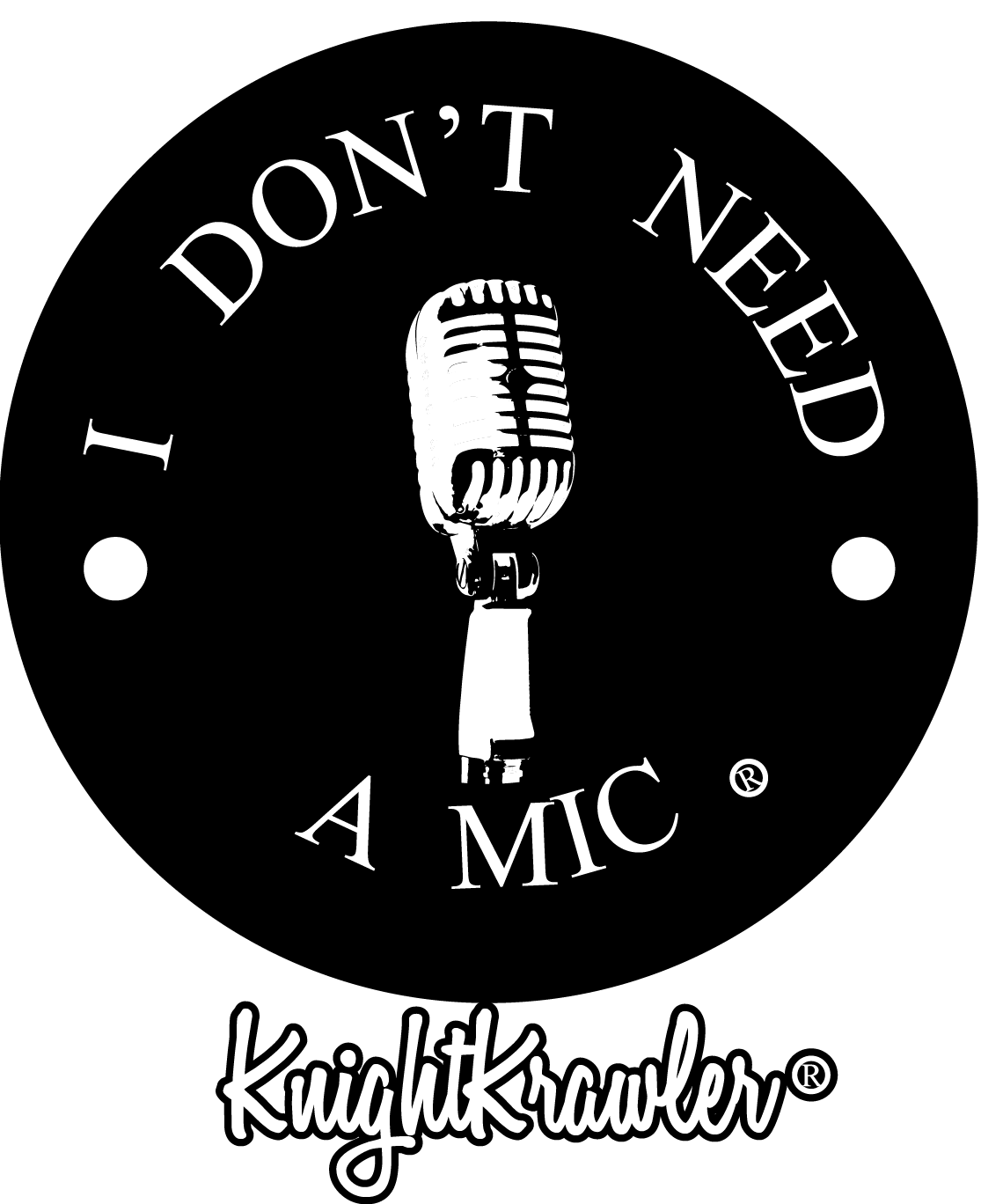Week 14:
Babel

According to legend, mankind decided their knowledge was so vast and their bonds so strong that, when they believed they could do the impossible, built a tower in hopes it would be high enough to reach Heaven. Before they were able to accomplish this feat, The Lord struck them all with different languages, so that they could not understand each other and therefore would not be able to continue building the tower. Unable to communicate, mankind abandoned the Tower of Babel and wandered throughout the world building their own distinct cultures and civilizations, which “supposedly” is what makes up the current world we live in today.
I was thinking about this story as I was researching 3D printing and the wonders, (and concerns,) associated with it. 3D printing is a method by which materials are used to build layers upon objects. It functions much like a standard printer, but the huge difference is that these objects “come to life” and are not constricted to a sheet of paper. This technology has allowed individuals to create lifelike designs, figurines, cosplay accessories, consumer products, movie props, etc. There is a growing market for this technology, and it will continue to reach new heights.
The tower continues to build…
Now here is where it gets interesting. I read two articles on how this technology is used for more than just leisure. In one article, there was a surgeon who announced the first human heart had been created using the tissue of a person and 3D printing. The model was the same size as their heart, and the surgeon said this technology will cure any need for transplants and similar operations in the near future, (10 years or so.) One can be in awe and frightened at the same time about this notion with questions like, (how will this be approved, would there be any complications, how can this be tested to see if it will even work, etc?)
The tower continues to build…
The second article I read discussed how massive 3D printing machines are being used to build houses from the ground up. The Chairman of Lennar Home Construction Company, Stuart Miller, boasts about the ability to create houses 3 times faster with this technology and that it will eventually eliminate the need to have more than 1 worker overseeing the projects. Again, what seems as an outstanding breakthrough comes with a cost…how many people will be left without jobs due to their “replacements” and what would this mean for the economy as a whole?
Which brings me back to Babel. Why were people “really” stricken/gifted with different languages, which resulted in the abandonment of the project? Was it because the more they built…the more they were losing in the end? If mankind stayed in that one place in the world, then everything would have stopped there, and so much that could have been discovered elsewhere never would have happened. Or maybe…just maybe…they could have built so high they actually would have reached Heaven, and it wasn’t time for mankind to see that. In my opinion, I think technology and innovation are wonderful things, but we have to be careful and not let our ambitions blind us, and above all else, do not “climb” too high…too fast.
References:
Olick, D., (2022, November,10). Take A Look Inside The Only Large-Scale 3D Printing Housing Development in the U.S. Medium. https://www.cnbc.com/2022/11/10/look-inside-only-large-scale-3d-printed-housing-development-in-us.html
NBC News (2023, March,15). 3D Printing: The Future of Organ Transplants. Medium. https://www.nbcnews.com/now/video/is-3d-printing-the-future-of-organ-transplants-165385797615
Britannica (2023, July, 3). Tower of Babel. Medium. https://www.britannica.com/topic/Old-Testament
Week 13:
Desperate Times Call For Desperate Measures…

Last Sunday, I went to go see Oppenheimer. It was a great movie to me and at the risk of being, “’that one guy’ who spoils movies,” I will only say this because it is not really a spoiler…the day the world realized the atom could be split, was the day every scientist in that field understood…they could make a bomb. The only question then was, “who would do it first?” I find that relevant to this latest discussion because the invention of Bitcoin came from a need to find alternative ways to do commerce due to the uncertainty of the economy…much like the atomic bomb was created due to the uncertainties of war.
Back in 2009, the U.S. was in a recession and the people’s trust in the government was wavering. There was simply too much mortgage lending to people who normally could not apply for homes. Instead of being turned away, the banks were predatory with their tactics and offered mortgages to individuals with impaired credit, insufficient income, and low credit scores. On the outside looking in, the greed of the banks and the mishandling of the situation gave way for people to want an alternative to where they did not have to rely on the government or the current banking model to survive.
What I found so interesting about this week’s lesson and the independent film we watched was how extensive Bitcoin actually was…and the irony of it. Many people thought they could avoid the corruption and dishonesty of previous institutions by putting the power back into the hands of the people, only to realize some of those people were just as dishonest as the banks were. That had to be a crippling revelation that no matter what, they were still in the same boat when it came to being fed disinformation, and being victim to theft, and fraud. Maybe it would be better to go back to the traditional banking system, because like the old saying goes, “the devil that you do know…is better than the one that you don’t.”
Just like in the movie Oppenheimer, he had a naïve belief that the atomic bomb would encourage people NOT to use such a deadly weapon, however, how would anyone know “exactly how deadly it was” unless it were dropped? And then afterwards, would dropping the bomb convince people not to use the technology again…or would it just persuade them…to make a bigger, deadlier bomb?
References:
Hoffman, T. (2022). Cryptopia: Bitcoin, Blockchains and the Future of the Internet- FULL Documentary. Medium. https://www.youtube.com/watch?v=Y2qe3hFeQ5g
Overbye, D. (2023). Christopher Nolan And the Contradictions of J. Robert Oppenheimer. Medium. https://www.nytimes.com/2023/07/20/movies/christopher-nolan-oppenheimer.html
Week 12:
Return Of The Same

I must admit, I didn’t really dig too deep into any information regarding Artificial Intelligence (A.I.) and its impact on the future, and the only information I previously knew were from quick sound bites and side conversations on social media. This week was an eye-opening experience, (especially the deep fake technology where one’s identity can be copied and manipulated into something else.) But here’s the question, how cutting edge is this really? Is this really a new way of thinking, or just an “updated” way of doing things?
Before A.I. and the spread of disinformation via “manipulated media,” newspaper companies could simply print out headlines that were false…or misrepresent events, dates, and times that could leave the masses wondering, “what is really going on?”
Let’s go even further back. In Ancient Rome, when Roman citizens were considered enemies of the state, there were proscriptions posted letting the public know this. Anyone who captured or killed these people were rewarded, (sometimes with the land and belongings of the proscribed,) and those who aided these individuals were considered enemies as well. Question is…were they truly enemies of Rome…or maybe just individuals who no longer served the interest of those in power. I say that to say this, throughout history, there have been ways to cause confusion and disinformation…just in our time it can be through A.I.
Of course, one of the greatest fears are the devastations of war and a “machine apocalypse” much like many of us have seen in countless sci-fi movies. My answer to that is this…there are many truths buried in cinema, but the same situations that prevented a nuclear holocaust would be the same situations that would prevent this scenario, “if everyone has the power to do it…no one is going to act first.” A second fear, (which is just as haunting,) is the question of whether humanity will be replaced by machines as this technology develops further. Will there no longer be compelling stories, art, literature, etc because our “way of life” can be written by computers better than by humans? Well, my answer to that is do not give over enough information to make yourself obsolete. That is the equivalent of training a person to do your job so well that the company no longer needs you and can pay them less money to do the same thing.
I strongly believe so long as caution and common sense are exercised, this latest leap into the future will have tremendous benefits going forward. Sure there will be those who will aim to spread disinformation via manipulated media, and this is why it is so important to educate the masses on exactly what A.I. is…in order to prevent hysteria. The future is here. Whether we are willing to accept that is of no consequence…the only thing we can do now is learn as much as we can and adapt to this latest technological leap!
References:
The Incredible Creativity of Deepfakes- And the Worrying Future of AI. (2023, May 19). Medium. https://www.youtube.com/watch?v=SHSmo72oVao
Britannica. (n.d.). Proscription Ancient Roman Notice. https://www.britannica.com/topic/proscription

Week 11:
A Form of…Escape?
With all the “freedom” technology brings…I wonder if it comes with a curse? With the ability to google…will certain skills and abilities of organic qualities of art be lost in time? There was a term back in the day called “Virtuoso” which meant someone so skilled in a series of crafts…that it broke the rules of physics.
“How can somebody be that good at multiple things?”
Maybe…the virtuosos were able to channel a special part of themselves that to others…seemed easy…but was definitely a struggle.
Technology can only give so much, in my opinion. Some of the greatest authors and musicians were able to use their crafts to inspire the world. But did it come with a hefty price? I believe to dedicate yourself to a specific skill takes drive, determination, discipline…and courage. Most importantly…courage.
The funny thing is that most artists during their interviews explain their gifts as an “act of GOD.” They are truly humbled by the opportunity to do their thing and cannot really speak on why or how they can even do it.
Maybe it is a “form of escape,” where a person can take themselves out of an environment or situation of despair and surround themselves with protection of peace, (aka their artform.) Or maybe…the situation isn’t even that deep. Someone has been given a charge to be the best they can at what they do…and everything else seems to fall in line.
Virtuoso…someone who is skilled in a series of crafts…it seems to break the rules of physics.
Maybe, there is a reason why there is no concrete definition for the term. There should be a hint of “magic” in it…the mystery is what makes the story. After all, a magician cannot tell you all of their tricks…now can they? That wouldn’t be any fun…

Week 10:
Hacked!
My mother’s email was hacked recently! This led to all of her social media, financial information, etc. This week’s lesson spoke of privacy, but in my opinion, once your information is public, there is only so much you can do to prevent people from taking advantage of a situation. If an individual (or corporation) can gain access to even “a sliver” of your identity…that can lead to permanent damage to your finances, social credit, and personal well-being. Nobody likes to be bullied, and this form of bullying is a silent menace…because you can’t pinpoint where it came from and why that person/entity “chose you.”
My personal belief is that nothing on social media nor the internet is “private.” Once it is out there…it’s out there. But as technology advances, you really can’t escape the fact this is the new norm when conducting business, establishing relationships…etc. Protecting your personal information from hackers is a tricky situation, and it most likely will always be…as the protection gets more effective and efficient, so does the hackers techniques adapt to compensate.
My advice is to limit as much personal content as you can when using the internet because, just like in my mother’s case, all thieves need is a small amount of information to infiltrate violate your data and interrupt your everyday life. I never save my banking information nor passwords for example…I would rather recreate a new one as I go, and I only use guaranteed, trustworthy sites when conducting business online. In addition, having a financial institution that takes fraud detection seriously is a great bonus to adding extra security and peace of mind. My bank will contact me immediately if it seems there was a transaction “out of the norm” of my everyday operations. Unfortunately, people are out there who prey on others…trying to steal and destroy their identities. My mother was able to reclaim hers and hopefully others who have experienced similar situations will stay vigilant. This is the only way to safeguard against internet predators who prey on unsuspecting victims…
References:
He Li, Lu Yu & Wu He (2019) The Impact of GDPR on Global Technology Development, Journal of Global Information Technology Management, 22:1, 1-6, DOI: 10.1080/1097198X.2019.1569186

Week 9:
“Love You For Fake…Hate You…For Real”
Social Media is a beast!
You can post many positive moments in your life…and crickets chirp…but if you post controversy…watch who “likes it” first. This is what let’s you know who is really looking at your pages, profiles, etc. Social Media, in my opinion, has let people become too comfortable with sharing ideas, dreams, goals, thoughts, etc that used to be personal and only communicated to family/friends In addition, tracking information such as current locations and destinations are easily visible to anyone willing to take the time to look. This opens up the door for people to “spy” on another’s page, commenting degrading and derogatory statements while staying virtually anonymous. Although most social media outlets have increased security and encourage people who feel bullied and/or harassed to speak out so they can investigate the situation, my advice overall would be to limit how much information you put out in the first place.
Take me for example. I am a spoken word artist who travels across the United States facilitating workshops, seminars and events geared towards encouraging people to tap into their positive outlets…like I did mine. I still limit certain information I put on social media, (I don’t put flight information on my social media and most time will post pictures of places long after I have left them,) for example. In my opinion, some information is on a “need to know” basis and to have a false sense of security with social media is a recipe for disaster.
But back to my original statement…just try it out. Go to your social media and type in a serious matter of something bad that happened to you…then a few days later…post something extremely incredible, that was a true blessing. Actually, post a string of them…interchanging good and very bad moments. You should also make them up to sound as outlandish as possible…and watch the replies. Oftentimes it will NOT be the same people. That is the “beauty” of social media…sometimes people will “love you for fake…and yet hate you for real…”
References:
Fernandez, A., Farkas, J., (2021). Racism, Hate Speech, and Social Media: Systematic Review and Critique. Media. https://journals.sagepub.com/doi/10.1177/1527476420982230
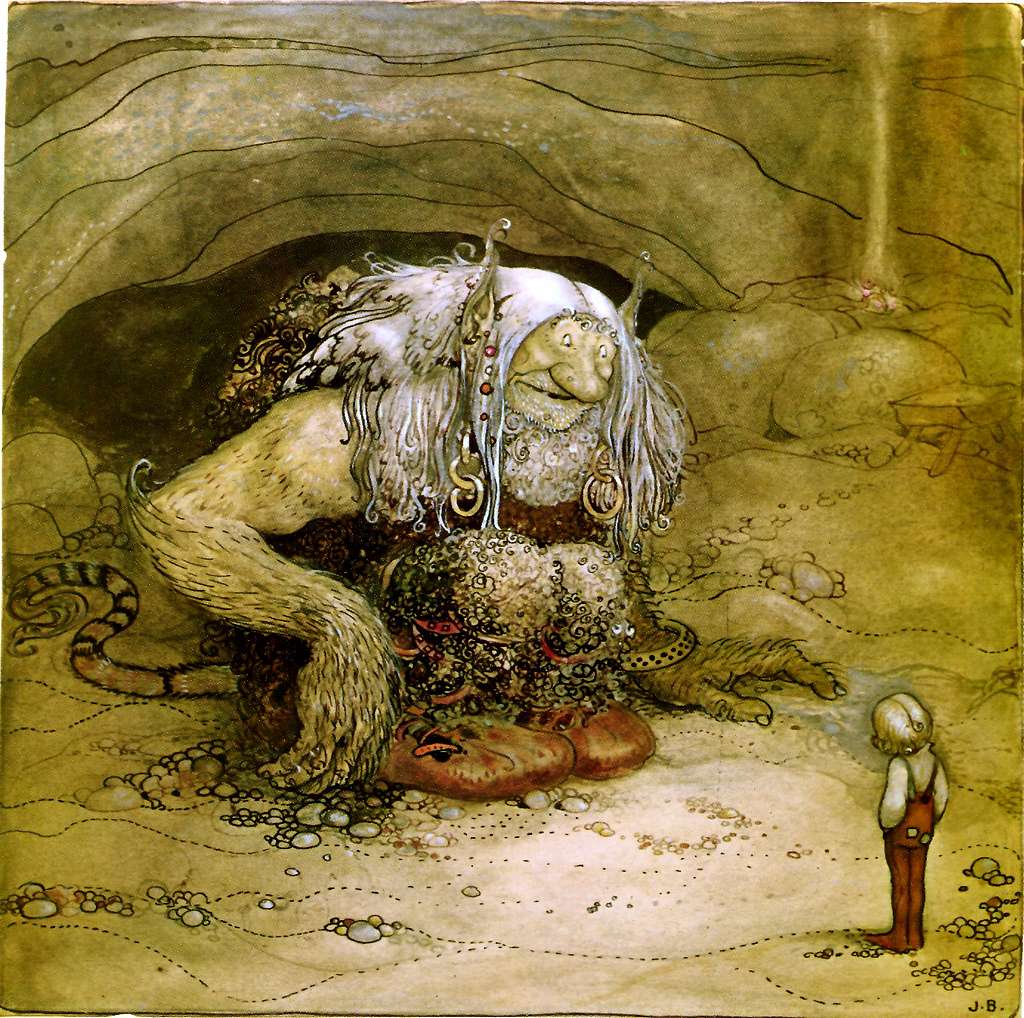
Week 8:
“Do NOT Feed the Trolls…”
The advancement of technology has allowed information to be accessed and disseminated at a speed unlike ever before. It’s almost as if, at the click of a button, any question can be answered, problem solved, and statistic fact checked. With this “gift” of knowledge almost comes the curse…what happens when results sound “too good to be true” or because of the ease of almost everyone having the ability to contribute to sharing information, there are situations where what is being shared is deliberately incorrect?
Trolling, (intentionally instigating conflict, hostility, and arguments within a social media community,) is not a new concept, however it has gained more traction due to the newer forms and increasing usage of social media. One could argue this practice is not much different than a person who wants to “play devil’s advocate” and instead of focusing on a particular school of thought, decide to radically shift to another…just because they can.
While reading the texts the week, I wondered to myself, “when, if ever, has trolling been beneficial?” Well in most cases, it probably hasn’t and just meant to get under a person’s skin…but then I think about other instances of its usage. During presidential campaigns for example, there may be an over exaggeration of a specific party member just to sway voters to side with the opposing member. Nowadays, (even though there is some fabrication involved,) there’s still some truths voters tune in on which affect their final decisions. I have also seen trolling used to “irritate someone” to the point where they tell the truth, (where that person loses their composure due to annoyance and accidently blurts out important, factual, information that they previously and intentionally withheld.)
This leads me to believe that some trolls are necessary in my opinion…but I still say do NOT regularly feed them. Because posts, blogs, wikis…etc are easily accessible to a vast majority and some people use these as outlets to consistently deliver incorrect information to the masses, causing strife and conflict just for the sake of doing it. Discernment is necessary…because just like anything else…the more you feed it…the more it grows…
References:
Rossini, P., Stromer-Galley, J., Baptista, E., Oliveira, V. (2021). Dysfunctional Information Sharing on WhatsApp and Facebook: The Role of Political Talk, Cross Cutting Exposure and Social Corrections. Medium. https://journals.sagepub.com/doi/full/10.1177/1461444820928059
Vijay, D., & Alex Gekker. (2021). Playing Politics: How Sabarimala Played Out on TikTok. Medium. https://journals.sagepub.com/doi/10.1177/0002764221989769

Week 7:
“I Think…Therefore I Am…”
~Rene Descartes
No one wants to be captured in a negative light. The truth, however, is that nobody is perfect. So, what do you do when you have a desire to meet someone yet don’t want them to know intimate things about you because that might turn them off? In situations like these, social media has granted people a type of “cloak” to shield themselves from things they don’t want others to see. This week we created fake dating profiles listing likes, dislikes, hobbies etc…along with profile pictures geared towards attracting people who have similar interests. As I was writing mine, I thought more about the difference between fabricating when you are speaking to someone face-to-face…versus doing the same thing online.
Although “a lie is a lie,” when done in person, it can be noticed quicker than via social media. For example, if you tell someone you are 6’2, as soon as they see you in person, they will know whether or not this is true…versus you posting a profile pic that makes you “look taller” than you really are.
People who use the latter approach are what I like to call, “I Think…Therefore I Am,” individuals who focus on projection more than reality. Their end goal is to convince someone to like other attributes about them while ignoring the unattractive ones, (or features that person already stated were turn offs.)
Being able to do this in the world of social media is easier because to know something about a person all you really have to do is “check their profile.” In general, people have been lax when it comes to withholding personal information about themselves, (e.g. likes, dislikes, favorite foods…etc,) which all seems harmless enough…but for someone who invests deeply into selective self-presentation, they can target individuals without them least expecting it.
My dating profile was funny because my profile pic does not match what I look like, (nor do my “hobbies” fit what I am interested in,) so when I shared it with friends and family, they all laughed at how creative I was with it. The truth, however, is if this were someone who did not know me at all, is it fair to build an emotional connection with someone that starts with me claiming I’m something I’m not?
For example, if she says she likes poetry…but she also wants a man who is 6 feet tall…is it wrong to post a picture at an angle where I look taller…even though I am not…but I really do write poetry? Is initially saying something you think people want to hear just so they will eventually “grow to like you” a bad thing?
In my opinion, what begins a certain way will end the same…and what seems harmless now may not be considered so…if the shoe was on the other foot…
References:
Tong, S., Corriero, E., Wibowo, K., Makki, T., Slatcher, R. (2020). Self-presentation and impressions of personality through text-based online dating profiles: A lens model analysis. Medium. https://journals.sagepub.com/doi/full/10.1177/1461444819872678
Week 6:
“The Fake Vs. The Real”

Yesterday while searching Facebook, I came across an article that peaked my interest. As soon as I “clicked” on the link it took me to a page filled with stories that had absolutely nothing to do with what the original headline said. This is what is known as “click bait” which is defined as “the practice of writing sensationalized or misleading headlines in order to attract clicks on a piece of content.” Nowadays, there is a lot of talk about not being able to trust media outlets due to practices like these, often using the term “fake news” to categorize the intentional dissemination of false information in an effort to damage the reputation of an individual, make money through advertising revenue, or both. This made me start to wonder if this is a new phenomenon due to the increasing use of technology or has this always been the case throughout history. I did my research and came out with some very interesting results.
Ironically, we live in times that are simpler than earlier societies, (although we are more technologically advanced.) There used to be classifications of how false a person or statement was depending on its severity and/or the user’s intent. A “taradiddler” for example, was a term used to describe a person who always told fallacies and was generally deemed untrustworthy, (no matter the occasion.) This put me in the mind of several sites or news stations I personally believe will NEVER tell the truth. An “ultracrepidarian” was a term from the 1600’s which described individuals who “pretend to be” experts in a field that they really knew little to nothing about. This put me in the mind of the “social media experts” in law, medicine, and science who have no formal education on the subjects they debate but swear their opinion(s) are facts.
The list goes on.
“Saltimbancoes, quacksalvers, and charlatans” were terms used to describe people who sold medicines or remedies that didn’t work, (or didn’t work as advertised.) This made me think of all of the internet advertisements seen by people who consider themselves reputable, yet by reading comments of those who invested in their products, it tells another tale. My favorite phrase however was the phrase, ‘mumpsimus.’” This word is defined as someone who, no matter what facts have been proven time and time again, will never accept them and instead sticks to old ways that have been thoroughly disproven years, (and sometimes centuries,) ago. These individuals are not interested in the truth and in my opinion are the reason many of the others who fit the previous definitions can continue to mislead the masses.
One thing for certain “fake news” didn’t start overnight, and apparently nothing is new under the sun. It is important for people to seek the truth for themselves and inspire others to do so. In my opinion this way of thinking will help minimize the damage misleading information can cause.
References:
Poole, S. (2019, November 2022). Before Trump: Th History Of Fake News Media.https://www.theguardian.com/books/2019/nov/22/factitious-taradiddle-dictionary-real-history-fake-news
Week 5:
“You Got the Juice Now…”
This week’s reading assignment reminded me of two awesome movies that spoke on clout and gaining recognition. Godfather Part II, (written by Mario Puzo and directed by Francis Ford Coppola,) and Juice, (written by Gerard Brown and directed by Ernest R. Dickerson,) both painted pictures of protagonists who, when faced with difficult situations, made decisions that catapulted their positions of power in the eyes of their peers and others.
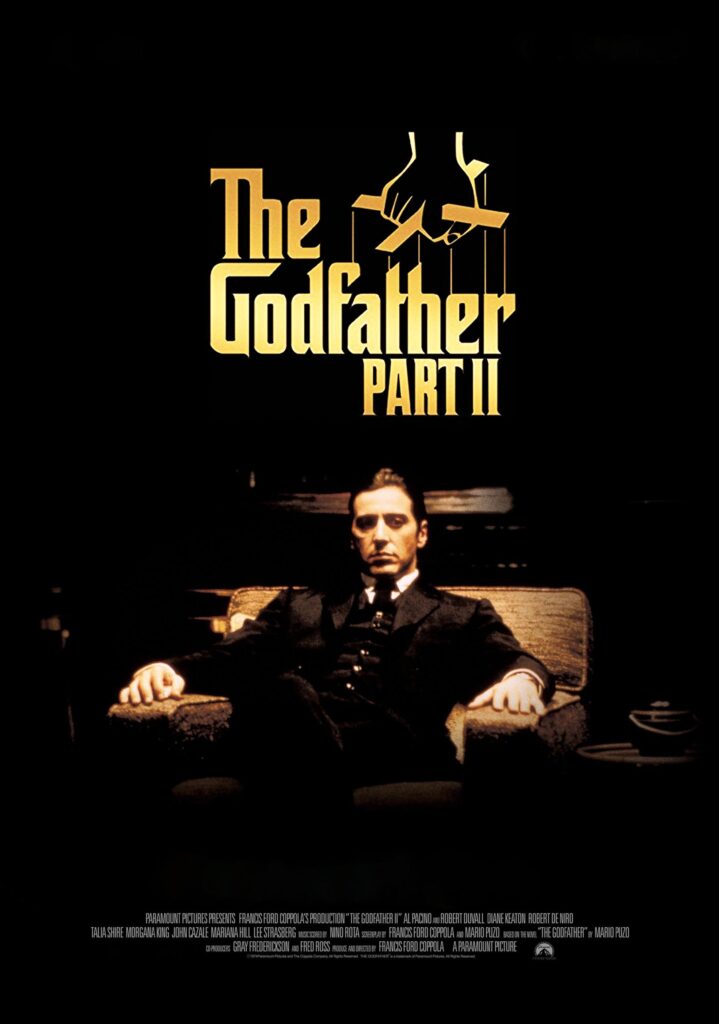
In Godfather II, Vito Corleone was a Sicilian immigrant who found a home in New York City. He went on to raise a family, had friends in similar circumstances, and in some situations, they committed acts of burglary and petty theft to make ends meet. In the city, there was an individual who went by the name “Don Fanucci” who had clout as far as controlling and taxing businesses as well as demanding “a cut” from anyone he saw fit. Once Vito started making more money, he caught Don Fanucci’s eye…but instead of paying the Don his cut…Vito decided to eliminate him. Although it was done in the stealthiest way possible, word still got out and since Vito, “took care of the problem within the community,” he received an upgrade in social standing from his peers and from then on was known as “The Godfather.”
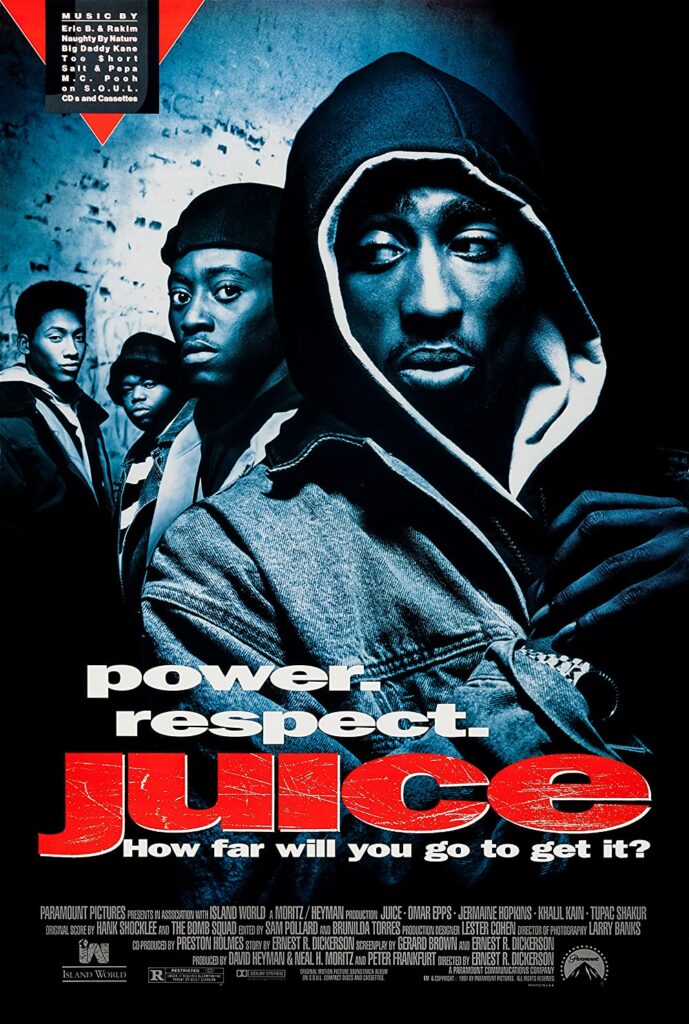
Juice was a story about four friends from the inner city who were basically juvenile delinquents, not really trying to hurt anyone, but just having fun. Things took a turn for the worst when one of the friends “Bishop” got possession of a gun. The power associated with being able to decide the fate of a person (life or death) made him change and it wasn’t until his former friend “Q” challenged his position did he suffer any consequences for his actions. The result was Bishop falling to his death from a building, while the onlooking public recognized Q as the victor. Now the one who “had the juice” aka the clout was Q…replacing his adversary and former friend.
Both movies depicted the protagonist’s caught in a situation where they “had to make a choice” and that choice affected other’s opinions around them. In addition, it changed their realities going forward. I am pretty sure Q got challenged later in life by someone who “wanted the juice” in his neighborhood, and as far as Godfather II, Vito Corleone made enemies along the way who waited until he was in his older age to strike against him.
I related this to our previous readings of clout and how they are important in this digital age. Although violence rarely plays a role like in the movies mentioned, trying too hard to gain recognition (especially by exaggeration) can have negative consequences, (loss of credibility, lack of originality, etc.) The biggest risk, in my opinion, is the risk of sounding just like everybody else. Gaining clout to me should be something organic and not manufactured…that way there can be no question as to why an individual did what they did and why they received accolades for it.
This is the difference between people who chase clout and those who are “destined” to have it.
References:
Evans, J. (2021). The Anatomy of Digital Clout (Chasing): Visibility and Relational Labor Among DIY Hip-Hop Musicians on Chicago’s South Side
Coppola, F. F. (1974). The Godfather: Part II. Paramount Pictures.
Dickerson, E. (1992). Juice. Island World Moritz-Heyman/Paramount Pictures
Week 4:
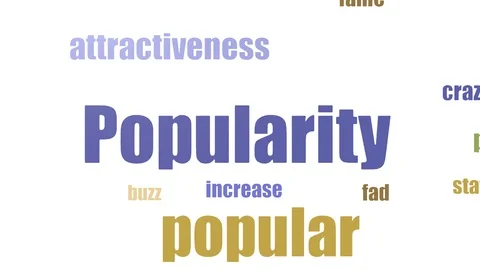
It’s Not Always…
I started in the job market early growing up and I still remember my father giving me advice for my first interview. He said, “first impressions are very important because people will always remember you… whether it is good or bad. A good impression will result in a lasting one that can take you far into your career.” Now that I think about it, many of the relationships I have with others these days were built on trust that was formed from the past…cemented relationships that stood the test of time…built on honesty, respect, integrity, and longevity. Recently, I learned how this philosophy can also be applied to the digital world and this age of technology. While taking my certification course in SEO I began implementing some of the tips and techniques the instructors were suggesting, (checking the speed of my website…it’s functionality, etc,) and I realized that knightkrawler.com is on the first page of a google search…but it is not the first result with that name on Google.
“Team 2052 KnightKrawler Robotics” holds that title, and it made me understand exactly why they do.
“It’s Not Always ‘What You Know…’”
I learned this week how powerful Google’s search engine is, yet still sometimes you must grab its attention to achieve a larger presence on the world stage. Knowing what people are looking for and “how they are looking” plays a huge role in building lasting relationships with others and further establishing a reputable brand. For example, one tip stressed during the SEO certification was to check and see how mobile your website is because more and more people are “on the go” versus staying at home next to their desktop(s). In addition to mobility, content is a must because it shows you are constantly moving. I have seen KnightKrawler Robotics post many videos and interviews over the years of their competitions, so I am not surprised how this brand is easily recognizable on Google searches.
“It’s Not Always ‘Who You Know…'”
My take-away from this is to post more of my accomplishments and overall content to increase my presence. Because in the end, it all seems to link together and who knows…one day I may take that number one spot when I type my name into Google’s search engine.
“It’s Not Always ‘What You Know…’or ‘Who You Know…’Sometimes it’s ‘Who Knows You…’”
References:
Birch, K., Cochrane, DT., & Ward, C., (2021). Data as asset? The measurement, governance, and valuation of digital personal data by Big Tech. Medium. https://journals.sagepub.com/doi/10.1177/20539517211017308
Anderson, C. (December, 13 2004). The Long Tail.
Week 3:
The Needs of the Many…
This week I felt I may have been on social media a little longer than usual. I had a spoken word event on Saturday so naturally I wanted to promote more to get the word out as much as possible. My favorite “weapon of choice” is Instagram because it tells a story through pictures and words. To my surprise, there was an option to show exactly “how long” you stay on Instagram and it seems as if I average 20 mins a day with my peak times being Tuesday’s and Sunday’s. This information is presented in bar graph form as if looking at metrics when working for a major corporation. That got me wondering, what else does Instagram, (or any other social media app,) know about me?
I must admit I am a bit of a Trekkie so a phrase from Star Trek that Spock always used to say comes to mind while writing this, “the needs of the many outweigh the needs of the few.” During class we were discussing the pandemic and, how during its onset, the government was trying to find ways to avoid panic and maintain order. Major corporations such as Google and Apple for example employed their massive information networks to be used as surveillance technology. This would help to pinpoint those who were infected at a time when vaccines were scarce, and uncertainty was at an all-time high. It was warned however that when measures like these are taken, it is very difficult to reverse them because this extensive information can be used for other purposes not intended. It could be a benefit to society or be the exact opposite.
Years after the pandemic, there is little talk about the panic that ensued, but there are noticeable differences, especially with social media and apps. Questions that were not necessary for signing up years ago are now present; default settings offer little to no privacy, (if you are not paying attention…you will miss them;) and more information than ever is being collected. Sometimes merely clicking on an ad will result in “multiple suggestions” being offered that were unsolicited. All of this begs the question, “what rights and/or freedoms did people give up unknowingly during the shadow of the pandemic?” Even having initiatives geared towards helping people would seem questionable if the information being used is something that was authorized for a completely different purpose that is not necessary anymore. If general privacy was considered “the needs of the few” and public safety “the needs of the many” only time will tell the scope and depth of what REALLY changed…
References:
Ghosh, D., Abecassis, A., & Loveridge, J., (2020, April 20). Privacy and the Pandemic: Time for a Digital Bill of Rights. Medium. https://foreignpolicy.com/2020/04/20/coronavirus-pandemic-privacy-digital-rights-democracy/
Epic.org (n.d). Social Media Privacy. Medium. https://epic.org/issues/consumer-privacy/social-media-privacy/
Week 2:
Did Video REALLY “Kill” The Radio Star?
This week’s readings focused on the rise of new technological advancements and how they were “predicted” decades and even centuries ago through music, scholars, and even mass terrorists. One of the main questions that kept coming up focused on people becoming more docile and willing to be, “controlled by technology,” giving away their freedoms and being more passive while technology is steadily becoming more complex.
One example of this can be seen in the replacement of workers by machines at many jobs. At first, people spoke more about unfair wages and not making enough money but instead of major corporations adapting to benefit them…they just replaced them with self-checkouts and more “convenient” ways to complete tasks that were originally assigned to human workers. This may end up cutting company costs however it does not help the public and the end result is a staggering amount of individuals who are still out of jobs and completely reliant on the government and others just to survive. In addition to this, not being able to regularly practice skills that are needing to survive in society further diminishes a person chance to “fight back,” even if they wanted to.
Ted Kaczynski aka “The Unabomber” said in his manifesto that “once a technical innovation has been introduced, people usually become dependent on it, so that they can never again do without it, unless it is replaced by some still more advanced innovation. Not only do people become dependent as individuals on a new item of technology, but, even more, the system as a whole becomes dependent on it. (Imagine what would happen to the system today if computers, for example, were eliminated.)”
Similarly, American Historian Lewis Mumford spoke on the ills of technological advancement and how as individuals depend more on it, “society tends to suffer.” He said, “instead of functioning actively man will become a passive, purposeless, ‘machine conditioned animal,’ whose proper functions will either be fed into the machine or strictly limited for the benefit of de-personalized collective organizations.”
While I do agree with some of these philosophies, one exercise we had to do dealt with how musicians express the changing landscape and to me there is no greater example than the song “Video Killed The Radio Star” by The Buggles. The song spoke on how the mediums of music were different and being replaced. Ironically enough, that songs music video was the first music video premiered on MTV in 1981. This begs the question, did the artists know that adapting is the only way to “survive?” Maybe completely refusing to conform to a system is as dangerous as being lethargic and allowing it to devour you. As in everything in life…moderation is key because for better or worse technological advances are here to stay and no one can be quite sure what the future may hold.
References:
Chapman, S. (2017, September 13). The Iphone X proves The Unabomber was right. https://www.chicagotribune.com/columns/steve-chapman/ct-perspec-iphone-x-unabomber-technology-20170913-story.html
Mumford, Lewis. (1967). The myth of the machine : technics and human development. New York : Harcourt, Brace & World
Week 1:
When Does Progress “Move You Backwards?”

This week we spoke of progress and how the definition is simply “to move forward.” But what if moving forward is not as simple as it seems…and moving too quickly causes more damage than good? Take running for example. There is an old phrase that says, “you have to be able to walk before you can run.” I think that is because trying to master a new skill or technique before being proficient in the first can lead to negative consequences, (scraped knee from falling, twisted ankle, etc.) So, if this can happen to individuals, who is to say that it cannot happen in the world of technology then? In our readings they spoke of the maiden voyage of the Titanic and how the ship was deemed “unsinkable” and at its time was the height of technological advancements. Of course, everyone knows the horrific outcome and in addition human error is said to play a major role in the tragedy, (i.e. the ship going too fast, only having enough lifeboats to meet regulation standards (20), cutting costs in materials to build the ship…etc.)
A lot of these issues could have been dealt with but a major factor in my opinion was the hubris of many individuals wanting to prove to themselves that they built something indestructible. Fast forward to now…with technology on the rise…is the past being re-examined to make sure we do not repeat the same mistakes? There is a reason drugs should go through rigorous testing before being approved, (even if it takes more time,) or new computer systems monitored for quality control before the older models are replaced. In order to make sure everything “goes right” certain procedures and protocol have to be followed and not just rushed for the sake of scientific advancement.
Another major topic in the readings was the emergence of “Web 2.0” and its ability to transform anyone with a computer to film makers, composers, writers, musicians, etc. Andrew Keen spoke about this as being a “narcissistic approach to leveling the playing field between artists and amateurs.” If this is true, then what will be put in place to distinguish between those who really “know their stuff” and those who just have the internet? Another question I had was how far will people take it? Soon you won’t have to go to school to practice law or perform open heart surgery…you can be an internet doctor by day and lawyer by night with no real training. In my opinion, technology will always move fast…but should NOT move faster than it should without all safeguards in place, (enough lifeboats, the proper materials for construction, following the rules, etc,) or else a tragedy that could have been easily avoided is bound to repeat itself.
References:
Keen, A., (2007). The Next Digital Decade: Essays on The Future Of The Internet. We Must Resist the Temptation of Web 2.0.
Pruitt, S., (2018, April 12). Why Did the Titanic Sink? https://www.history.com/news/why-did-the-titanic-sink
